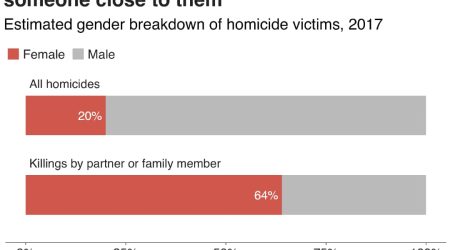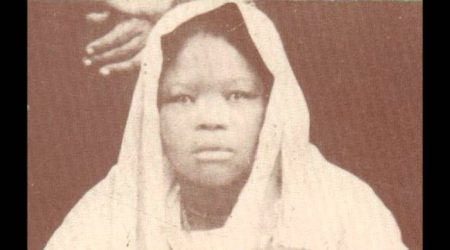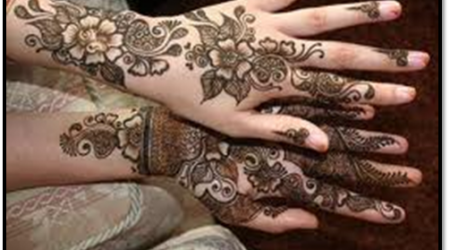END GIRL CHILD MARRIAGE
Photos by :Charles Mustapha Kayoka
NEEMA was married off at age 13 to a man of 62 who has two other wives.
Her father was approached by the man who became her husband, after the man saw Neema on her way to fetch firewood for her mother.
That same evening, the man, whom Neema calls Babu (grandfather), went with a cockerel and millet beer in a plastic container to Neema’s father, and put forward his proposition.
This took place in a village in Dodoma.
A week later, Neema’s father was given a pregnant cow; a shawl; a plastic bucket of millet beer; two hoes; and 180,000 TZS for Neema’s bride price.
Her uncles on her father’s side were each given a shawl and 10,000 TZS.
Her mother protested about the suit, having dreamt that Neema would complete school, then apply to a nurse training college and train to become a nurse.
Of course, nobody listened to her ‘ranting’, and a co wife (they are both married to the same man) told Neema’s mother “There is nothing you can do. Remember when my daughter Semeni was married off last year to that old man who had come to buy cattle? Semeni was only 12, younger than Neema. At least this man who is taking our Neema looks kind. The man who took Semeni hits her. We should thank God for the blessing that this man is kind”.
Neema’s mother and step mother were each given a kitenge and 10,000 TZS.
By age 14, Neema had delivered a child, a daughter, but the delivery was difficult to the extent, Neema developed fistula.
She was taken to a traditional healer when the fistula wounds formed abscess and started leaking pus, who recommended that Neema be taken to a hospital where Neema was given antibiotics, and the medical assistant recommended that Neema be sent to Muhimbili Hospital in Dar es Salaam for tests, and surgery.
Neema was ‘allowed’ by her husband, Babu, to take the antibiotics, but has not been taken to Muhimbili Hospital as yet.
The baby is healthy and Neema has to breastfeed her, although she often gets fever from the fistula.
Her husband has started demanding his conjugal rights, even after knowing that Neema is ill with fistula.
The other wives of Babu boil water for Neema to douche herself in her private parts when the pain becomes unbearable. One of them secretly gives Neema light pain killers like paracetamol which were sent to her by her sister. Babu would get very angry if he were to learn that Neema takes pain killers.
He believes ‘It is a woman’s lot to endure pain from childbirth’; although Neema concedes that he does not slap her unlike her sister Semeni, who is constantly beaten by the man who married her.
The violence which Neema experiences, is sexual abuse; not only because she is underage and is being sexually exploited by the man who ‘married’ her, but she also undergoes the pain from fulfilling her conjugal rights while being ill with fistula.

MWANAKOMBO was married off to her maternal grandmother’s cousin when she was 12, a month after she started menstruating and was taken through the rites of passage, unyago. Her husband was 68 when the marriage took place.
She is now 15 and has twice run away from her ‘husband’ only to be brought back and beaten.
She is quite assertive and calls her husband ‘Mtu mzima ovyo ‘, dirty old man, who reciprocates by hitting her.
She has started having a love affair with a young man of 24 who is unemployed and does not have the money to elope with Mwanakombo to Dar es Salaam.
They live in Pongwe, Tanga, where the practice of marrying off little girls to elderly men is common especially among the Digo and Segeju ethnic groups.
Mwanakombo had dreams before she was married off to her grand uncle.
She wanted to be a ta’arab singer and gain fame and recognition.
In fact, she has a good voice, and now she is only allowed to sing during ‘Ngoma za ndani’, dances which are prescribed for women alone, confined to a tiny group, and where the people who hear her sing in the chorus do not really appreciate her talent.
The first wife of her husband hates Mwanakombo and wishes Mwanakombo would run away and never come back to usurp her from her space.
Mwanakombo meets her lover in the woods near the village where she lives and her co wife encourages her to go for the clandestine meetings.
The household is steeped in tension because Mwanakombo refuses to do housework. She also refuses to answer when her step children who are older than her, address her as ‘Mama’.
Her own son whom she delivered when she was 13 is being looked after by her co wife whom Mwanakombo calls Bibi, grandmother.
Chances are likely Mwanakombo will make another attempt to run away, and will again be brought back amid beatings with a cane which her husband keeps to chastise her.
DAINESS was given away as a child bride by her father when she was 11 years of age to one of his friends and drinking buddies.
Her father had collected debts from the local brew bars in their village in Musoma, which amounted to 123,000 TZS. After failing to pay his bills which he owed at the local brew bars in his village, he took to going to drink in the next village and there too, he accumulated debts amounting to 90,500 TZS.
When accosted by the local brew bar owners, and got beaten for failing to pay his debts, (they beat him up good), that is when his friend offered to settle the debts in exchange for Dainess. She was handed over the next day to her father’s friend who came with his friends and brothers to collect her.
Following a short traditional ceremony which included the handing over of the gifts of cloth; some more money; two goats; beer; and a small suitcase for Dainess, she was taken away to her new home.
There, she found her ‘husband’ has two other wives- a much older wife who is the mother of his grown up children who have children who are older than Dainess, and a younger wife in her thirties who had prepared the wedding feast for family members, and the room in which Dainess was to spend her wedding night for the consummation of the marriage.
The wedding feast continued until the early hours of the morning with the men and Dainess’s husband getting more drunk while she sat quietly in a corner, afraid to ask where the toilet is.
After much back slapping from his friends and brothers, the husband was escorted into the nuptial room which one his wives had decorated with plastic flowers and balloons.
Dainess was taken in by the other two wives and given a kitenge to wear. During the entire ceremony, Dainess hadn’t spoken a word.
When the husband attempted to consummate the marriage’, Dainess wet herself with urine which she had been holding on to, for 12 hours. She then ran outside and started shouting that the husband is trying to harm her, and that she wants to go back to her mother.
The entire family, children included, came out when they heard the commotion. Neighbors too started gathering in the compound. By then, it was dawn, and the sun had risen.
Among the neighbors was a Pastor who went to inform the Local Government Authority Chairman about the plight of Dainess.
The Chairman came to the compound accompanied by a school master who phoned a community based organization (CBO) which does Outreach on HIV and AIDS. The CBO coordinator came with a policeman who took one look at the husband and his men friends holding heavy clubs and ran to the police station to get two more police officers to lend support.
Dainess’s husband said she, is his wife and no policeman; Pastor; or activist would stop him from enjoying conjugal bliss with her. By then, the entire village had converged into the compound with most men supporting the husband, while the women remained quiet.
The police men and the village Chairman then told the ‘husband’ that they are taking Dainess away, after the Pastor’s wife offered to give her shelter and the CBO coordinator promising intervention if the Pastor or his wife gets threatened.
Dainess was given shelter for a few days by the Pastor’s wife then she was sent to Mwanza to boarding school with support from civil society organizations and Faith Based Organizations.
The ‘husband’ went to Dainess’s father and demanded for the bride price. When Dainess’s father told him that he has spent all the money; sold the goats; and also had sold the cloth, he got beaten thoroughly by his ‘son in law’.
ZULFA was 12 when she was sexually assaulted and defiled by a man of 32, who is a neighbor living in the vicinity of her parents’ house in Mtwara Mikindani.
Her mother found out when she saw the bruises on Zulfa’s body and informed Zulfa’s father who called a family meeting.
The man who had defiled Zulfa is a person known to the family. His family was also called to attend the meeting. A neighbor suggested they report the defiler Juma, to the police so that he would get arrested and taken before the law, upon which, the defiler’s uncle proposed that the defiler marry Zulfa, ‘to save her honor’.
After much haggling, it was agreed by both families that Juma the defiler should marry Zulfa the coming Thursday and that a compensation of 300,000 TZS should be paid to Zulfa’s family, this, in lieu of the sexual defilement. The defiler was also ordered to pay the bride price of 200,000 TZS which would be shared by Zulfa’s father and maternal uncles; five pairs of Kanga; a set of bed sheets; household utensils which would be given to Zulfa to use in her new home; as well as pay the expenses of the wedding feast.
Even before the bruises had healed, Zulfa was married off to her defiler and taken to his home where he had just the one room which was used by his first wife and two children and Zulfa was made to sleep in the corridor.
During the fungate/the first seven days after the marriage ceremony, Zulfa was repeatedly sexually abused by her defiler, now her husband in the bedroom, while the other wife waited outside in the corridor. Then Zulfa had to come out of the room and sleep on a mat in the corridor while the first wife and children and the ‘husband’ slept in the bedroom.
Zulfa’s parents and community members did not give a thought to the emotional and physical trauma which she was going through.
They did not want to take her to hospital for treatment because they knew the medical officers would demand a Police Form 3 and would most likely report the matter to the police.
It was her aunt, her mother’s sister who decided to help Zulfa run away after buying her across the counter antibiotics from a pharmacy and told her to take the antibiotics.
After Zulfa’s health improved, her aunt came and took her away and sent her to Dar es Salaam to stay with her daughter.
Zulfa is now in Dar es Salaam, taking dress making classes, while helping her cousin sell vegetables from a kiosk.
Zulfa has lost her sparkle. She has become introverted. She is afraid of all men. She rarely speaks and is afraid to make friends.

ROZI ran away from a ‘husband’ who had married her when she was 15 after he paid her father a bride price of 500,000 TZS.
She had come home from school in a village in Singida and found a middle aged man with two other men having discussions with her father. Her mother told her to change from her school uniform and to wear her best dress then go and serve the men with soda.
Two weeks later, she found herself wearing a new kitenge dress; her hair had been plaited nicely; a new pair of shoes on her feet; she had been given face lotion to apply on her face; Vaseline cream to rub on her arms and legs; and a purse to hold. The purse had a handkerchief and some money.
Her best friend Messie had warned her that she was to be married off, which Rozi did not believe because she had already told her parents that she wants to study to be a teacher.
Now, here she was, all dressed up like a adult woman, while the traditional wedding ceremony was taking place.
She felt like she was in a nightmare when after the feasting, she was taken to her new home by the man who had married her.
When they got there, she found out the husband is a widower with two small children. He had married Rozi not only to replace a wife, but also to be caretaker of his small children.
Six months later, she found out the man’s wife had died from AIDS. The neighbors had told her about how the previous wife had suffered stoically even after the husband found out that he had infected her with HIV, he did not allow her to attend clinic to get medication, saying “People will find out”, until she died from lack of treatment.
He then married Rozi whose parents did not take the precaution of insisting on HIV tests.
One neighbor who knew of an organization which supports people with HIV/AIDS took Rozi to test for HIV and her test showed she has contracted the virus.
She was then advised to join a support group which counsels people with HIV. She joined the group without her ‘husband’s’ knowledge. The counseling gave her self esteem and the courage to escape.
By then, she had started taking anti retro viral medicine and one day, when she opened a small, locked cupboard, she found the same medicine which had been prescribed to her. That was she realized ‘He’ was taking anti retro viral medicine while hiding his HIV status from her.
That was when she decided to run away with support from the counseling group.
They gave her the fare and some extra money and she moved to Dar es Salaam where she had been given contact of groups which support people with HIV.
In Dar es Salaam she started by sleeping in the center which offers counseling while volunteering as a cleaner.
In the process, she learnt Peer Education and counseling skills. She now counsels youths who have HIV.
Neema; Mwanakombo; Zulfa; Dainess; and Rozi were denied the Right to be Girls. They were thrown into marriage and all that marriage entails, while still children. Their childhoods; health; dignity; self esteem; their freedoms were snatched away from them.
They suffered repeated sexual abuse. They feel betrayed that it is their own families who ‘sold’ them into child sexual slavery behind the mask of marrying them off, but in effect, just ‘sold’ them to men who ‘bought’ them because the people who were supposed to protect them are the very people who betrayed them.
The Children’s Dignity Forum (CDF) a civil society organization in Tanzania did a Study on child; early; and forced marriages in Tanzania in 2013 and the Study indicates that we do not have official statistics on child marriage in Tanzania.
The CDF Study noted that the practice of girl child marriage are more prevalent in areas of Tanzania where the populace are livestock focused and also among communities which engage in farming.
The coastal areas of Tanzania also have a high rate of girl child marriage. The Study further noted that cultural practices and poverty contributed to a large extent in girl child marriage. The practice occurs more frequently in rural communities.
The law in Tanzania is explicit on child sexual abuse with a punishment of life imprisonment (the Sexual Offences Special Provisions Act, SOSPA 1998), however, the Law of Marriage Act 1972 (LMA) has provisions for a girl to marry at the age of 15 ‘with the consent of her parents’.
What this illustrates is the fact that SOSPA 1998 has criminalized sexual relations with a teenage girl with a heavy penalty of life imprisonment on the one hand, while on the other hand, the LMA 1972 has legalized sexual contact with a girl of 15, as long as it is within the sanctity of marriage.
This contradiction makes it difficult for law enforcement officials to institute criminal proceedings against men who marry little girls because the LMA as well as Cultural laws condone the practice.
What we, as a country should do is to revisit the Law of Marriage Act and start conversations for amending the clauses which provide a loophole for parents to give away their girl children in exchange for monies or livestock while hiding behind the veil of culture and tradition.
We should revisit the definition of who a child is and reach a consensus so that our perception of a child would have uniformity.
Parents, especially in rural and pastoral communities need to be made aware of the hazards, especially the health hazards of marrying off their daughters at a tender age.
The Local Government Authorities LGAs; the media, community radio stations especially, and Opinion Leaders like Ward Councillors; Members of Parliament and religious leaders should Speak Up against the practice.
To stop such a damaging practice, we all have a role to play.
“Together We Can Make it Happen”
Leila Sheikh














Leave a Reply